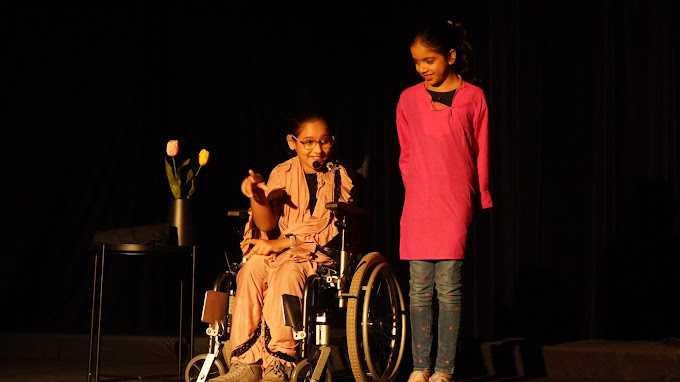Creativity And Imagination: Nurturing Artistic Expression In Children’s Drama
I’m thrilled to embark on a journey into the captivating world of Children’s Drama, highlighting its pivotal role in fostering the skills of budding writers. Within the realm of “Spotlight On Skill” by Tamasha, under the guidance of visionary Deepika Rajani, where Talent takes center stage, our mission is to nurture the talents and dreams of every aspiring writer, irrespective of their background. In this article, my aim is to guide you through the varied landscape of writing classes, unveiling their diverse facets and aiding you in discovering the perfect fit for your creative pursuits.
Introduction
Creativity and imagination are essential components of a child’s development, shaping their ability to think critically, problem-solve, and express themselves artistically. Children’s drama provides a dynamic platform for nurturing these skills, allowing young minds to explore their creativity, unleash their imagination, and develop a deep appreciation for the performing arts. In this article, we will delve into the importance of creativity and imagination in children’s drama, as well as explore strategies for fostering artistic expression in young performers.
The Importance of Creativity and Imagination in Children’s Drama:
1. Cognitive Development:
Engaging in dramatic play stimulates various areas of the brain, fostering cognitive development, problem-solving skills, and critical thinking abilities in children.
2. Emotional Expression:
Drama provides a safe space for children to express their emotions, empathize with others, and explore complex feelings through role-playing and storytelling.
3. Social Interaction:
Participating in group drama activities encourages collaboration, teamwork, and communication skills, fostering positive social interactions and peer relationships.
4. Self-Confidence and Self-Expression:
Children gain confidence and self-esteem as they explore their creativity, take on different roles, and express themselves freely in a supportive and encouraging environment.
Strategies for Nurturing Artistic Expression in Children’s Drama:
1. Encourage Playfulness and Exploration:
Foster a sense of playfulness and curiosity in children by providing open-ended prompts, props, and costumes that encourage imaginative storytelling and role-playing.
2. Embrace Diversity and Inclusivity:
Create an inclusive environment where children feel valued and accepted regardless of their background, abilities, or interests, allowing for diverse perspectives and creative contributions.
3. Inspire Creative Thinking:
Encourage children to think outside the box, explore unconventional ideas, and experiment with different characters, settings, and plotlines to spark their creativity and imagination.
4. Provide Opportunities for Self-Expression:
Allow children to express themselves authentically through drama activities, encouraging them to share their ideas, thoughts, and feelings through improvisation, dialogue, and movement.
5. Offer Constructive Feedback:
Provide constructive feedback and positive reinforcement to children, acknowledging their efforts, creativity, and unique contributions to the drama process, while also offering guidance for improvement and growth.
6. Integrate Music, Visual Arts, and Movement:
Incorporate music, dance, visual arts, and movement into drama activities to stimulate multiple senses and enhance children’s creativity, expression, and storytelling abilities.
7. Celebrate and Showcase Achievements:
Celebrate children’s accomplishments and artistic achievements by organizing performances, showcases, or exhibitions where they can share their work with family, friends, and the community.
Case Study: The Impact of Children’s Drama Programs:
The Creative Kids Theater Company: A Case Study
The Creative Kids Theater Company is a community-based drama program that provides children with opportunities to explore their creativity and develop their theatrical skills in a supportive and inclusive environment. Through a combination of workshops, rehearsals, and performances, children are encouraged to express themselves, collaborate with their peers, and showcase their talents on stage.
Participants in the program have reported increased self-confidence, improved communication skills, and a greater appreciation for the performing arts. Parents and teachers have observed positive changes in their children’s attitudes, behavior, and academic performance, noting the transformative impact of drama on their overall well-being and development.
Conclusion:
Creativity and imagination are fundamental aspects of children’s development, and drama provides a rich and engaging platform for nurturing these skills. By fostering a playful and inclusive environment, encouraging creative thinking, and providing opportunities for self-expression, children’s drama programs can empower young performers to explore their creativity, unleash their imagination, and cultivate a lifelong passion for the arts. As educators, parents, and community members, we play a vital role in supporting and nurturing the artistic expression of our children, ensuring that they have the opportunity to thrive and flourish in all aspects of their lives.
Stay tuned for more insightful blogs on how drama can positively impact children’s lives!




































